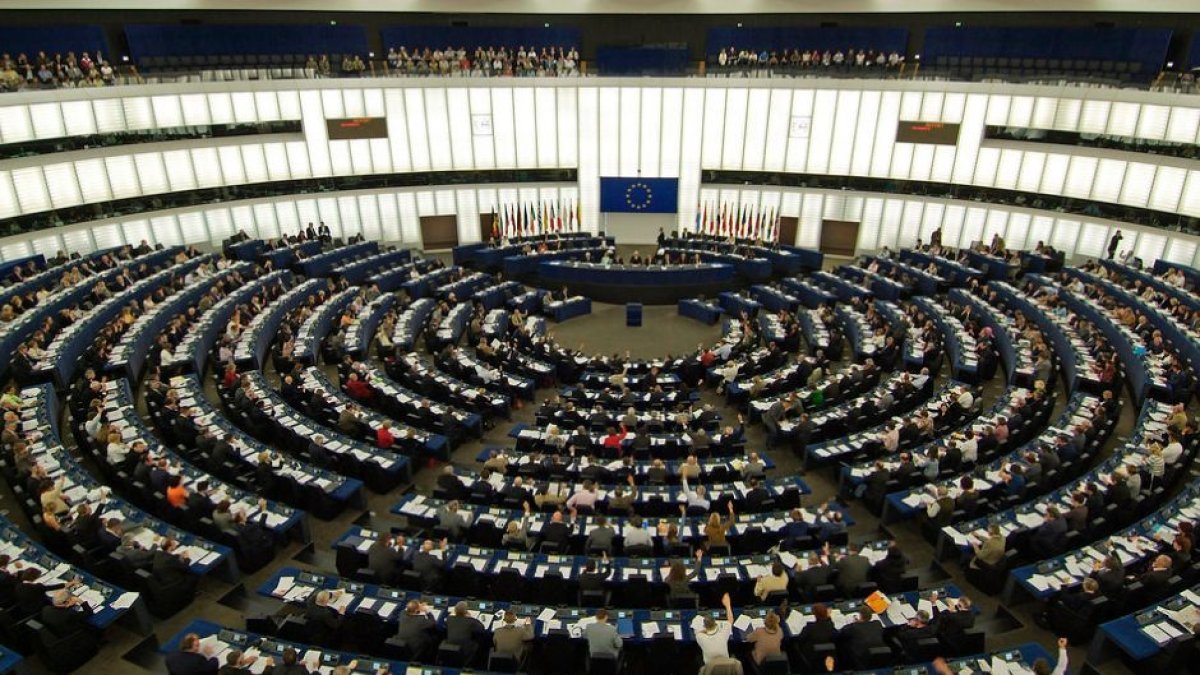The European Parliament leads the way in approving groundbreaking legislation regulating artificial intelligence usage
The European Parliament's approval comes amidst escalating concerns regarding the advancement of artificial intelligence.

Parlamento Europeo | Wikimedia Commons
The European Union approved legislation to regulate the use of artificial intelligence (AI). The plenary session of the European Parliament passed an ambitious regulation on the use of AI. It is the last step before countries in the European Union begin to apply the regulations.
The legislation had 523 votes in favor, 46 against and 49 abstentions. President of the European Commission Ursula von der Leyen was pleased with the result. She described the measure as innovative and claimed that - in her opinion - it guarantees greater security.
"This will benefit Europe's fantastic pool of talents. And set a blueprint for trustworthy AI throughout the world," said the president of the European Commission on her X account.
As AFP recalls, "The original bill, considered unprecedented worldwide, had been presented by the European Commission, the executive arm of the European Union, in April 2021. However, the appearance at the end of 2022 of ChatGPT, from the Californian company OpenAI, capable of writing dissertations, poems or making translations in seconds, gave the project a new dimension."
Models with different requirements
The adopted regulations require that general-purpose AI models must comply with transparency obligations, as well as European copyright regulations. Meanwhile, systems considered high-risk (such as those used in critical infrastructure, education, or law enforcement) will be subject to stricter requirements.
"The text supported by MEPs also plans to prohibit citizen rating or mass surveillance systems, or even the remote biometric identification of people in public places," AFP detailed.
The legislation also requires a European AI Office to monitor and apply sanctions.
"Non-compliance with the rules can lead to fines ranging from 35 million euros or 7% of global turnover to 7.5 million or 1.5 % of turnover, depending on the infringement and size of the company," reported AFP.
"Planning for the promises and complexities of artificial intelligence"
The European Parliament's approval comes amidst escalating concerns regarding the advancement of artificial intelligence. The law will probably be the first of many around the world. For example, last month Congress announced it is working on fully regulating artificial intelligence (AI) to try to keep up with this technology and, in turn, detect and manage the dangers it entails. For this reason, House Speaker Mike Johnson announced the creation of "a bipartisan and specific working group" to know how to direct it.
"Because advancements in artificial intelligence have the potential to rapidly transform our economy and our society, it is important for Congress to work in a bipartisan manner to understand and plan for both the promises and the complexities of this transformative technology," explained the speaker in a statement on his website.
The CEOs of the main AI technology companies have warned the public about the risks. For example, Sam Altman, CEO of OpenAI, said that "social imbalances" could have dangerous consequences in terms of artificial intelligence (AI).
"I'm not that interested in the killer robots walking on the street direction of things going wrong. I'm much more interested in the very subtle societal misalignments, where we just have these systems out in society and through no particular ill intention, things just go horribly wrong," Altman said in a statement reported by Axios.

























